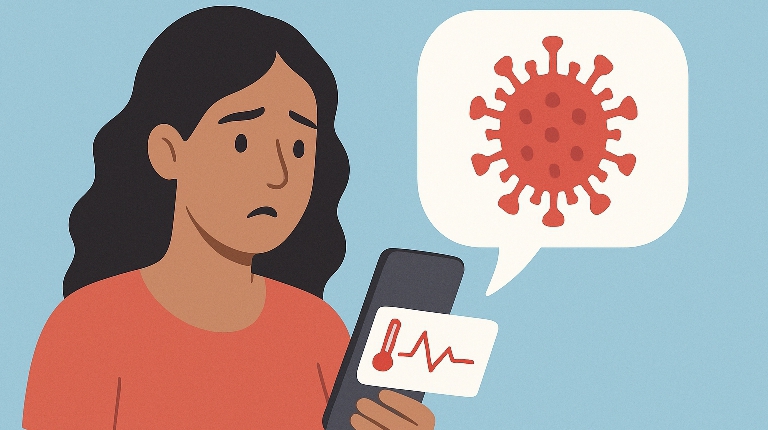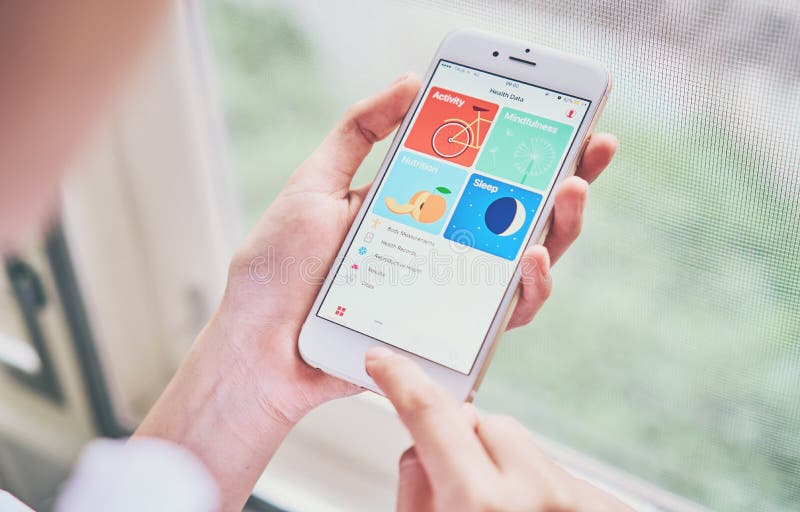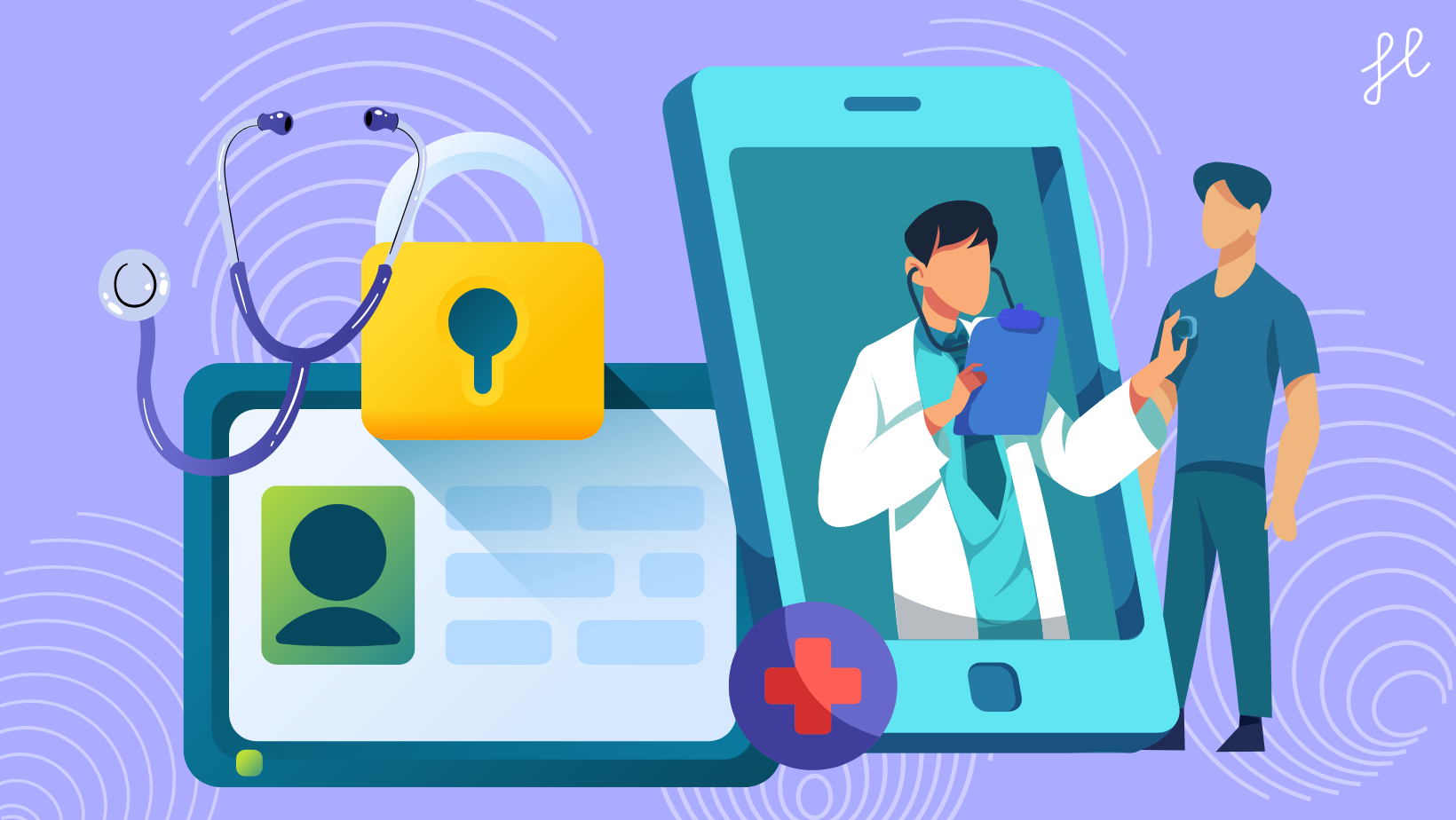Your Phone Knows When You’re About to Get Sick

Could your phone know you’re ill before you do? At first glance, it sounds like science fiction, something out of a movie episode. Yet, in a world dominated by connectivity, artificial intelligence and smart devices, this scenario is fast becoming reality. Smartphones, which were once simple tools for communication, have quietly transformed into sophisticated sensors, tracking our bodies and behaviors in ways we barely notice. Every action is collected and analyzed, forming a digital echo of our physical state. In many cases, this data can predict illness before a fever rises or a cough appears.
The idea that the device you carry in your pocket, might know more about your health than you do, may be unsettling. But it is also profoundly hopeful. This quiet evolution in technology is redefining how we understand preventive healthcare and the relationship between human behavior and illness.
The Invisible Health Companion in Your Pocket
Consider your daily routine. Your smartphone is always within reach, it could be on your nightstand, in your bag, perhaps even beside your pillow as you sleep. It is used to do practically everything. But beneath this mundane activity lies a powerful health-monitoring capability. Modern smartphones are equipped with sensors capable of detecting motion, sound and environmental context. When paired with wearables such as smartwatches, rings and earbuds, they become even more precise. Your device can track your heart rate, sleep quality, movement patterns, even subtle changes in your speech or typing patterns.

These devices help to measure and record physiological and behavioral signals without requiring any conscious effort. Over time, the data they collect can reveal patterns that correspond with health changes. A drop in daily activity may indicate fatigue or malaise. The smartphone, in this sense, becomes an invisible companion, constantly observing the subtleties of your daily life.
In countries like the United States, Germany, Japan, and South Korea, this concept is no longer theoretical, as researchers and tech companies are exploring ways to use existing devices for predictive health monitoring. What was once limited to hospital-grade equipment can now be performed, to varying degrees of accuracy, in the comfort of our own homes.
How Phones Detect Early Signs of Illness
Predicting illness begins with understanding the patterns that signal it. When we fall ill, our routines subtly shift. Fatigue may reduce mobility, disrupted sleep can become more frequent, and physiological signals such as heart rate or body temperature may fluctuate. Smartphones and wearables capture these shifts in real time, analyzing deviations from baseline behaviors.
During the COVID-19 pandemic, for instance, researchers at Stanford University, led by Dr. Michael Snyder and research scientist Tejaswini Mishra, demonstrated that wearable data could identify infection before symptomatic onset. Similarly, research from Mount Sinai Health System showed that resting heart rate and sleep disturbances, measured via wearables, correlated with early stages of influenza infection. These examples show that the body emits signals long before illness becomes obvious, and our devices are increasingly able to pick them up.
Behavioral cues also provide critical information as reduced social interactions can signal fatigue or depression. Slight tremors in typing or changes in voice tone might indicate fever or something else. Combining these multiple signals, advanced algorithms can generate predictive insights that anticipate illness days in advance.
Real-World Examples of Predictive Health Tech
Latest Tech News
Decode Africa's Digital Transformation
From Startups to Fintech Hubs - We Cover It All.
Technology companies are turning these insights into tangible products. Apple Watch, a pioneer in health monitoring, can detect irregular heart rhythms, alerting users to potential atrial fibrillation. Fitbit devices track sleep, heart rate variability and physical activity, offering early illness indicators. Experimental apps have explored using smartphone microphones to detect coughs or respiratory irregularities, enabling users to be warned of infections before symptoms fully develop.
Global case studies illustrate the potential. In the United States, researchers aggregated data from thousands of Fitbit users to track the early spread of influenza and COVID-19, demonstrating that population-level monitoring can detect outbreaks days before official reports. In Europe, smartphone-based studies on mental health monitoring have revealed early signs of depression and anxiety through changes in typing speed, social engagement and movement patterns. Each of these references underscores the growing capacity of our devices to act as early-warning systems, not just for individual users but for entire communities.
Beyond research, startups and established tech firms are exploring consumer-facing predictive health tools. Apps that track heart rate variability can notify users of potential illness, while wearable-integrated platforms can provide recommendations.
AI and Machine Learning Behind the Scenes
None of this predictive power would be possible without artificial intelligence. Machine learning algorithms analyze vast datasets, detecting subtle correlations between behavioral changes and health outcomes. By training models on millions of data points, AI can identify deviations that indicate illness, even when the differences are imperceptible to human observers.
For instance, a system may learn that a user’s slight increase in resting heart rate, coupled with a drop in daily activity and disrupted sleep, signals the early stages of influenza. These models excel at combining different data streams, creating a complete picture of a user’s health state. The predictive approach does not rely on dramatic or obvious symptoms, it thrives on nuance and context.
However, AI is not infallible. False positives are common, and the algorithms can be influenced by non-health factors such as travel, stress or irregular routines. Yet even with these limitations, the potential for early detection is remarkable. As the technology matures, predictive models will likely become more accurate, personalized and integrated into everyday healthcare practices.
Privacy, Ethics, and Data Concerns
Collecting intimate health data does raise complex ethical questions. Who owns this information? How will it be used, and by whom? The possibilities for misuse are significant. Insurance companies could adjust premiums based on predictive indicators, workplaces could monitor employee health and governments might deploy population-level tracking that risks privacy and autonomy.

Privacy frameworks attempt to address these concerns. The European Union’s GDPR and California’s CCPA set standards for data collection, consent and user rights. Yet predictive health technology often outpaces legislation, creating a gray area where data is collected faster than laws can regulate, and so, informed consent and robust security measures are essential. Individuals must retain control over their data and ethical frameworks must evolve alongside technology to ensure that the benefits of predictive monitoring are not outweighed by potential harms.
The ethical conversation extends beyond privacy, as there are philosophical questions about autonomy, human oversight and the potential psychological impact of knowing one’s predicted health trajectory. While early warnings can save lives, they may also cause anxiety or lead to unnecessary interventions. Navigating these dilemmas will be crucial as predictive health tools become mainstream.
The Future of Smartphone-Driven Healthcare
Latest Tech News
Decode Africa's Digital Transformation
From Startups to Fintech Hubs - We Cover It All.
Looking forward, smartphones and wearables are poised to transform healthcare at both individual and societal levels. Preventive medicine could become the default, with devices alerting users to potential health issues before they become severe. Integration with telemedicine could allow instant consultations triggered by early-warning signals, connecting patients with doctors or therapists at the first sign of illness. Personalized insights could also guide lifestyle adjustments, making it tailored to each individual’s unique data profile.
At the population level, aggregated and anonymized data could inform public health strategies, helping authorities track epidemics, allocate resources and prevent outbreaks. Yet, this future also requires vigilance. Balancing the promise of predictive health with privacy, consent and ethical oversight will determine whether these tools empower individuals or erode autonomy.
Conclusion
Our smartphones have quietly evolved far beyond simple communication tools. They are silent health companions, offering the possibility of early intervention and improved health outcomes. This unprecedented ability brings hope and a sense of wonder, but also raises some pressing questions. As technology continues to advance, society will need to navigate the delicate balance between innovation and ethics, ensuring that these powerful tools serve humanity rather than compromise it.
In the near future, knowing that your phone might anticipate your next cold or infection may feel uncanny, but it also embodies a profound opportunity to live healthier and more informed lives, guided by the companion we carry everywhere.
You may also like...
Bundesliga's New Nigerian Star Shines: Ogundu's Explosive Augsburg Debut!

Nigerian players experienced a weekend of mixed results in the German Bundesliga's 23rd match day. Uchenna Ogundu enjoye...
Capello Unleashes Juventus' Secret Weapon Against Osimhen in UCL Showdown!

Juventus faces an uphill battle against Galatasaray in the UEFA Champions League Round of 16 second leg, needing to over...
Berlinale Shocker: 'Yellow Letters' Takes Golden Bear, 'AnyMart' Director Debuts!

The Berlin Film Festival honored
Shocking Trend: Sudan's 'Lion Cubs' – Child Soldiers Going Viral on TikTok

A joint investigation reveals that child soldiers, dubbed 'lion cubs,' have become viral sensations on TikTok and other ...
Gregory Maqoma's 'Genesis': A Powerful Artistic Call for Healing in South Africa

Gregory Maqoma's new dance-opera, "Genesis: The Beginning and End of Time," has premiered in Cape Town, offering a capti...
Massive Rivian 2026.03 Update Boosts R1 Performance and Utility!

Rivian's latest software update, 2026.03, brings substantial enhancements to its R1S SUV and R1T pickup, broadening perf...
Bitcoin's Dire 29% Drop: VanEck Signals Seller Exhaustion Amid Market Carnage!

Bitcoin has suffered a sharp 29% price drop, but a VanEck report suggests seller exhaustion and a potential market botto...
Crypto Titans Shake-Up: Ripple & Deutsche Bank Partner, XRP Dips, CZ's UAE Bitcoin Mining Role Revealed!

Deutsche Bank is set to adopt Ripple's technology for faster, cheaper cross-border payments, marking a significant insti...


